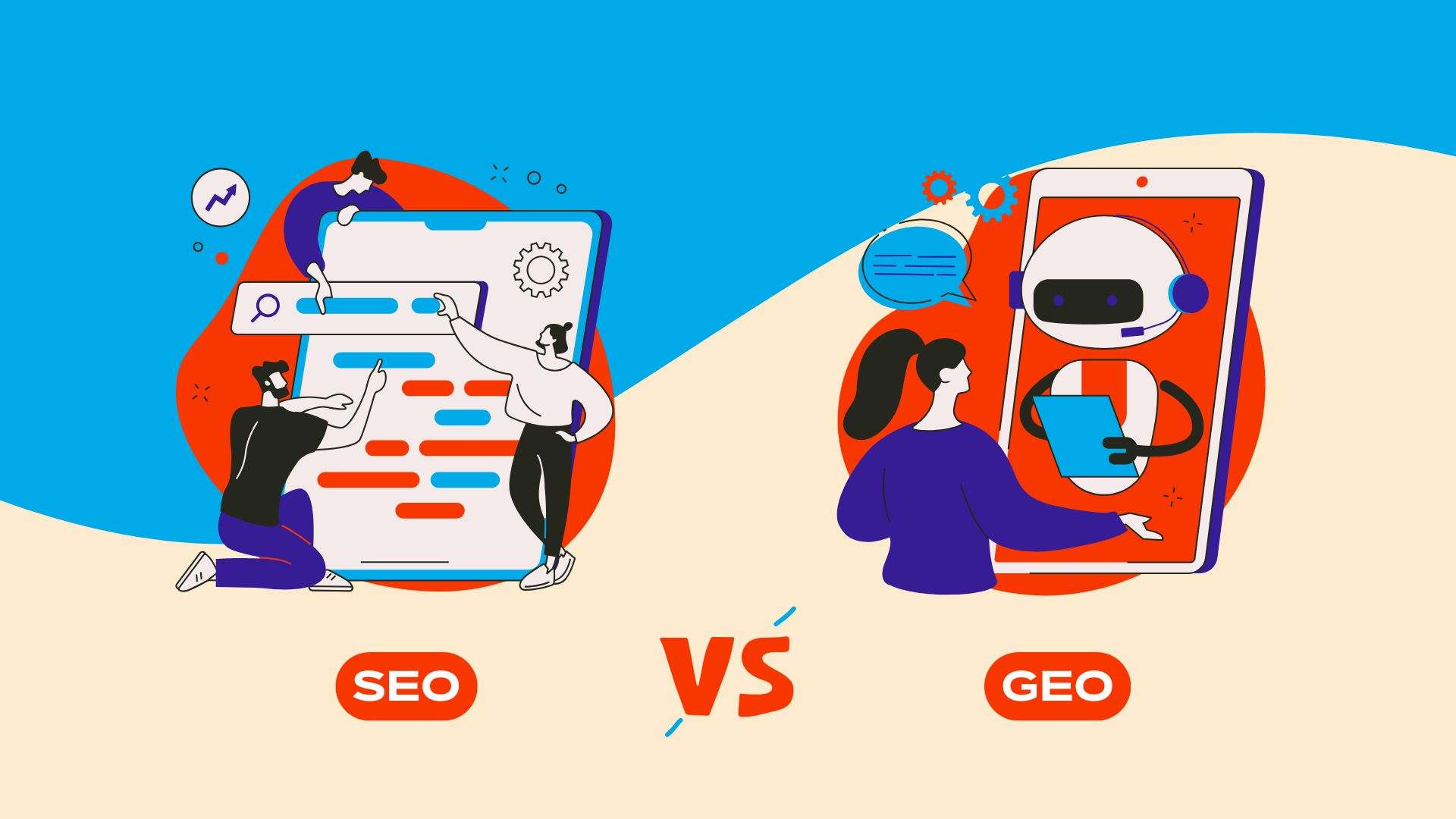Search is no longer limited to typing your queries in Google. In 2025, users get answers through AI assistants, chatbots, voice devices, and even smart search engines that generate responses, rather than list websites. This has brought with it a whole new layer of optimisation: Generative Engine Optimisation, or GEO, which works in tandem with SEO but has completely different rules for functionality.
If you are a marketer, business owner, or brand strategist, the difference between GEO and SEO is what will keep you visible where your audience actually searches.
Let's explore the new landscape clearly, practically, and with user-first insights.
Why Search Behaviour Has Changed Dramatically in 2025
Most users no longer say "Let me Google this."
They say, "Let me ask ChatGPT / Gemini / Perplexity."
This means:
Users are looking for direct answers, not links.
AI tools summarise the Internet - and they decide which brand to mention.
Your content needs to be readable, not just by search engines, but by AI reasoning models.
Traditional search engine optimisation alone simply can't guarantee visibility any longer. That's where generative engine optimisation services step in-they ensure AI platforms correctly interpret your expertise and present your brand when users ask for solutions.
SEO in 2025: Still Powerful, But Very Different From Before
If you've been doing SEO for years, here's the reality:
2025 SEO is no longer about "ranking"; it's about being the most helpful answer for intent-based search.
Key SEO shifts marketers must grasp:
1. The main stream of Google's Search Generative Experience (SGE)
SGE places AI-generated answers atop traditional results. If your content isn't optimised for SGE, you're losing the top real estate instantly.
2. Topic mastery trumps keyword frequency
Google checks whether your website demonstrates real expertise in a subject.
Cluster-based content, internal linking, and authority signals tend to matter more.
3. Technical benchmarks are stricter
Google estimates:
Page responsiveness
Speed stability
Layout consistency
Mobile readiness
Running website audit online frequently can help a brand maintain its performance as algorithms update.
4. Search visibility is now reliant upon real-time updates.
Google rewards sites that:
Update frequently
Refresh stale pages
Add new insights regularly
Regular monitoring using a website rank checker will ensure that brands adapt quickly.
This is why companies rely on the best SEO agency Singapore, agencies equipped with advanced AI-integrated SEO systems that keep pace with rapid algorithm changes.
What is GEO? The Part Most Marketers Are Confused About
Generative Engine Optimisation: GEO makes sure that your content appears inside AI-constructed answers.
AI search tools do not work like Google. They:
Read context, not just keywords
Summarise ideas, not crawl pages.
Compare the accuracy between multiple sources
Look for structured, factual clarity
GEO aligns your content so AI can quote, reference, or summarise your brand correctly.
What GEO requires in 2025:
1. Information formatted for AI interpretation
AI prefers:
Clear subheadings
Direct answers
Definitions
Structured facts
Step-by-step explanations
Messy content is ignored immediately.
2. Verified brand information
AI assistants build "knowledge graphs" and avoid brands with outdated, vague, or inconsistent data.
3. Credible digital footprint
Your content should be supported by:
Expert perspectives
Original perspectives
Data points
Citations from reliable sources
This tells AI that your brand is worth referencing.
4. Conversational content design
GEO-ready content answers how users actually ask questions, such as:
“How do I fix…?”
“What’s the best solution for…?
“Explain the difference between…?”
That is why GEO has become such a necessary strategy, no longer an option.
GEO versus SEO in 2025 — Finding the Distinctions Clearly for Users
Your brand needs to stay discoverable.
New 2025 Reality: Brands Without GEO Are Becoming Invisible
Even if your brand is ranking #1 on Google, AI assistants can still:
Skip your website.
Rewrite the content without referring to yourself.
Or switch to competitors with clearer information.
This is why generative engine optimisation services are becoming the #1 priority of future-facing companies.
Practical Example: How Users Search Today
Old Search Behaviour (SEO)
"Best CRM software for small businesses"
Google shows 10 links
2–3 sites clicked by the user
User reads comparisons
New Search Behaviour (GEO)
Which CRM is better for a small business in 2025?
AI gives a complete answer.
AI mentions 3–5 brands.
User selects directly from the AI's summary.
If your brand isn't in that answer, you're just not part of the user's decision-making process.
What Should Marketers Do Next?
1. Perform a full content structure audit
Check whether your content is AI-readable.
Use tools like SEO tools and AI-based content scanners.
2. Update your entire website for SGE visibility
Refine:
Frequently Asked Questions
Definitions
Product comparisons
Solution-based content
3. Combine GEO & SEO as one strategy
This will ensure visibility across Google AND generative search.
4. Seek professional advice
Working with experts such as the best SEO agency in Singapore means you are applying the latest optimisation methods employed anywhere in the world in 2025.
Ready to Make Your Brand GEO + SEO Ready?
If your business is going to show up in Google search, AI search, voice search, and conversational queries, now's the time to take action.
Leverage innovative strategies, structured content, and generative engine optimisation services to adapt to modern search behaviour.
Start optimising for the future today, and let your users find you wherever they search.

